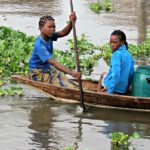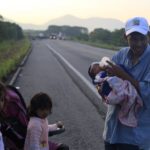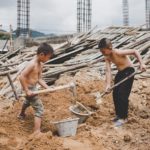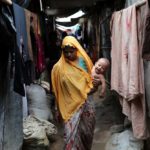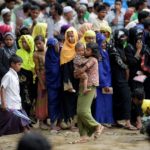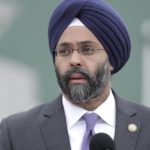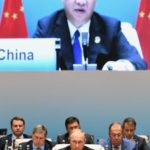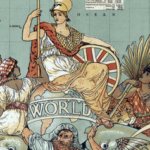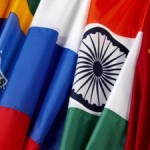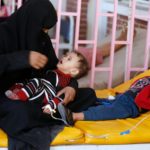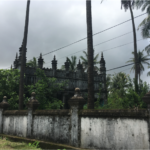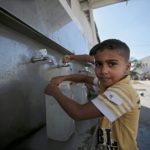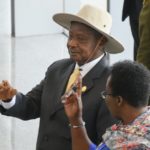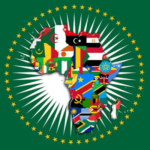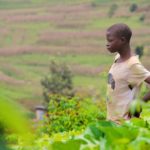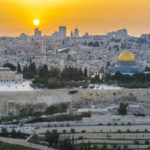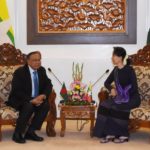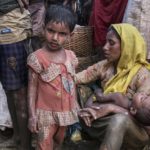Articles by The Conversation
We found 223 results.
Opening Pandora’s Box: Gene Editing and Its Consequences
John Bergeron – The Conversation,
17 Dec 2018
6 Dec 2018 – Today, the scientific community is aghast at the prospect of gene editing to create “designer” humans. Gene editing may be of greater consequence than climate change, or even the consequences of unleashing the energy of the atom.
→ read full articleThose Designer Babies Everyone Is Freaking Out about – It’s Not Likely to Happen
A Cecile JW Janssens – The Conversation,
17 Dec 2018
10 Dec 2018 – Forecasts of designer babies followed the announcement of the gene-edited twins, just as they have for any reproductive technology since 1978. This signals the public must learn more about genetics.
→ read full articleCarbon Emissions Reach 37 Billion Tonnes in 2018, a Record High: Report
Pep Canadell, Corinne Le Quéré, Glen Peters, Robbie Andrew and Rob Jackson – The Conversation,
10 Dec 2018
5 Dec 2018 – Strong energy demand is behind the rise in emissions growth, which is outpacing the speed at which decarbonisation of the energy system is taking place. These analyses are part of the new annual assessment of the Global Carbon Project, published today in three separate papers. The GCP brings together scientists who use climate and industrial data from around the world to develop the most comprehensive picture of the Earth’s sources and sinks of greenhouse gases.
→ read full articleResearcher Claims CRISPR-edited Twins Are Born – How Will Science Respond?
Dimitri Perrin and Gaetan Burgio – The Conversation,
10 Dec 2018
27 Nov 2018 – Gene editing technology is revolutionising biology – and now twin human baby girls may be a living part of this story. Today several media outlets report that a team of scientists in China has used CRISPR to modify the DNA of healthy human embryos to genetically “vaccinate” against HIV infection. This is the first reported case of humans born with CRISPR-modifed DNA.
→ read full articleCOP24: What to Expect
Federica Genovese – The Conversation,
10 Dec 2018
3 Dec 2018 – Representatives of almost all the countries on the planet are gathering in Poland [3-14 Dec] to discuss the implementation plan for the 2015 Paris Agreement. There might be the opportunity to do so in Katowice, a Polish industrial hub and coal-mining city.
→ read full articleWhy We Are Not Ready for Genetically Designed Babies
Françoise Baylis, Graham Dellaire and Landon J Getz – The Conversation,
10 Dec 2018
27 Nov 2018 – Chinese researcher, Jainkui He claims to have created the world’s first genome-edited twins. Such action would pose unknown risks to the lives of these children and to humanity as a whole.
→ read full articleCOP24: How a Plastics Treaty Could Clean Up Our Oceans
Elizabeth Kirk – The Conversation,
10 Dec 2018
3 Dec 2018 – While the world gathers to negotiate on climate change, governments must recognise the public desire for action on plastic pollution and work together to solve it.
→ read full articleCOP24: Here’s What Must Be Agreed to Keep Warming at 1.5°C
Hugh Hunt – The Conversation,
10 Dec 2018
1. Reduce fossil carbon emissions.
2. Remove carbon from the atmosphere (NETs).
3. Halt the rise of emissions of non-CO₂ greenhouses cases (Methane, Nitrous oxide, CFCs).
4. Investigate techniques for geoengineering, including Solar Radiation Management.
All four of these must proceed simultaneously and in parallel. COP24 must make this perfectly clear. There is utmost urgency and no time to “wait and see”.
Time Is Running Out on Climate Change, but Geoengineering Has Dangers of Its Own
Catriona McKinnon – The Conversation,
10 Dec 2018
3 Dec 2018 – The realities of climate change look bleak, but is relying on a climate engineering project like solar radiation management the answer?
→ read full articleWe All Buy Slave-Made Products: Here’s How We Avoid Feeling Guilty
Michal Carrington, Andreas Chatzidakis and Deirdre Shaw – The Conversation,
10 Dec 2018
3 Dec 2018 – Hidden slavery is a growing global problem but we continue to turn a blind eye and embrace a seemingly insatiable demand for fast, cheap goods and services.
→ read full articleWorld’s First Gene-edited Babies? Premature, Dangerous and Irresponsible
Joyce Harper – The Conversation,
3 Dec 2018
26 Nov 2018 – A scientist in China claims to have produced the world’s first genome-edited babies by altering their DNA to increase their resistance to HIV. Aside from the lack of verifiable evidence for this non peer-reviewed claim, this research is premature, dangerous and irresponsible.
→ read full articleEarth’s Wilderness Is Vanishing, and Just a Handful of Nations Can Save It
James Allan, James Watson, Jasmine Lee and Kendall Jones – The Conversation,
5 Nov 2018
1 Nov 2018 – Just 20 countries are home to 94% of the world’s remaining wilderness, excluding the high seas and Antarctica, according to our new global wilderness map, published today in Nature. Our planet faces not just a species extinction crisis, but also a wilderness extinction crisis. Once lost, our wild places are gone forever. This may be our last opportunity to save the last of the wild, we cannot afford to miss it.
→ read full articleGirls in West Africa Offered into Sexual Slavery as ‘Wives of Gods’
Wisdom Mensah – The Conversation,
5 Nov 2018
29 Oct 2018 – Trokosi is an ancient practice in West Africa where virgin girls, some as young as six are sent as slaves to make amends for wrongs committed by their families.
→ read full articleWhy Does the Migrant Caravan Exist? And How Did It Come to Be?
Jerry Flores – The Conversation,
5 Nov 2018
31 Oct 2018 – A migrant caravan of almost 7,000 people who left Guatemala and Honduras is heading north towards the United States. The reasons they are leaving are complex but involve a U.S.-backed violent history.
→ read full articleHow US Policy in Honduras Set the Stage for Today’s Migration
Joseph Nevins – The Conversation,
29 Oct 2018
25 Oct 2018 – Hondurans fleeing poverty and violence – who make up most of the participants of a “caravan” estimated at between 7,000 and 8,000 people – are slowly moving through Mexico in the hope of reaching the United States and receiving refuge. President Trump has responded by characterizing the caravan as, among other unflattering things, “an onslaught” and “an assault” on the United States.
→ read full articleOrthodox Church: Biggest Split in a Thousand Years Triggered over Ukraine
Alexander Titov – The Conversation,
29 Oct 2018
24 Oct 2018 – The Moscow Patriarchate recently announced that it is breaking its ties with the Patriarchate of Constantinople, triggering what is potentially the biggest split in the Orthodox Church in a thousand years. So why is one of the great defenders of Christianity tearing itself apart?
→ read full articleSlavery Was Never Abolished – It Affects Millions, and You May Be Funding It
Catherine Armstrong – The Conversation,
22 Oct 2018
17 Oct 2018 – Slavery still exists and it happens in plain sight. The modern day estimate for the number of men, women and children forced into labour worldwide exceeds 40m. Today’s global slave trade is so lucrative that it nets traffickers more than US$150 billion each year.
→ read full articleStop Measuring Obesity with a Ruler: We’ve Discovered a Far Better Predictor of Health
Tim Spector – The Conversation,
15 Oct 2018
11 Oct 2018 – For over a century, we have relied on a simplistic measure to determine if someone is a “healthy” weight or not. This is the body mass index, the ratio of a person’s weight to the square of their height. The limits of this ratio are clearly demonstrated by professional rugby players; most of whom would be classified as “overweight”, despite having less than 10% body fat.
→ read full article[Nobel Peace Laureate] Aung San Suu Kyi’s Extraordinary Fall from Grace
Anthony Ware and Costas Laoutides – The Conversation,
8 Oct 2018
3 Oct 2018 – Facing increasing international pressure, Myanmar’s one-time star leader is running out of time to show leadership on human rights and the Rohingya crisis. In just the last few days, Canada stripped Suu Kyi of her honorary citizenship and the Malaysian prime minister stated publicly that she has lost his support.
→ read full articleUN Report Documents Genocide against Rohingya: What Now?
Max Pensky and Nadia Rubaii – The Conversation,
10 Sep 2018
5 Sep 2018 – As co-directors of the Institute for Genocide and Mass Atrocity Prevention at Binghamton University, we see this recognition of genocide in Myanmar as an opportunity to help mobilize the international community to take more decisive action than it has so far against the Myanmar government and in support of the Rohingya.
→ read full articleProbiotics: A First Look at What’s Going on in the Gut
Ana Valdes – The Conversation,
10 Sep 2018
6 Sep 2018 – For the first time researchers have taken samples from inside people’s guts to find out how much probiotics change the composition of microbes and the chemical compounds they produce. And they found that the effect of probiotics depends on the bacteria that are already present in the gut.
→ read full articleAs Myanmar Sends Journalists to Jail, Pressure Mounts on [Nobel Peace Laureate] Aung San Suu Kyi
Andrew Fagan – The Conversation,
10 Sep 2018
4 Sep 2018 – Myanmar’s de facto head Nobel Peace Laureate Aung San Suu Kyi is facing renewed international condemnation after two Reuters journalists were sentenced to seven years in prison for receiving documents detailing the killing of ten Rohingya men and boys by Myanmar army. This is yet another wakeup call that exposes the grave risks of passing over the hard work of building a democracy in favour of simply joining a personality cult.
→ read full articleJury Finds Monsanto Liable in the First Roundup Cancer Trial – Here’s What Could Happen Next
Richard G. "Bugs" Stevens – The Conversation,
20 Aug 2018
A jury concluded on 10 Aug 2018 that exposure to the herbicide Roundup caused Dewayne Johnson’s cancer and ordered the company to pay $289 million in damages. Thousands more claims are pending.
→ read full articleRohingya Crisis: A Year since It Shocked the World, What’s Changed?
Abdullah Yusuf - The Conversation,
20 Aug 2018
13 Aug 2018 – One of the world’s worst refugee crises is still unfolding, and conditions on the ground have barely improved.
→ read full articleClimate Change and Wildfires – How Do We Know if There Is a Link?
Kevin Trenberth – The Conversation,
13 Aug 2018
10 Aug 2018 – With California & Europe suffering another devastating wildfire year, more people are wondering about whether and how global warming is contributing. A climate scientist explains.
→ read full articleWho Are the Sikhs and What Are Their Beliefs?
Simran Jeet Singh – The Conversation,
13 Aug 2018
9 Aug 2018 – New Jersey’s first Sikh attorney general, Gurbir Singh Grewal, was a target of disparaging remarks recently. The bottom line is there is little understanding of who exactly the Sikhs are and what they believe. So here’s a primer.
→ read full articleBRICS Summit in Johannesburg [25-27 July]: Here’s What the Five Countries Are Looking For
Xuebing Cao – The Conversation,
30 Jul 2018
The summit is a useful opportunity for these countries to remind the world of what multilateralism can achieve. We may not see any significant leap forward as discussions get underway, but we’ll certainly see the emerging powers attempting to loud-speak their influence at a time of growing protectionism and uncertainty.
→ read full articleBreakthrough Could End Animal Testing in Carcinogen Research
Gareth Jenkins and Shareen Doak – The Conversation,
30 Jul 2018
23 Jul 2018 – Humans are not big mice so why are we still testing on these animals?
→ read full articleGenocide Hoax Tests Ethics of Academic Publishing
Reuben Rose-Redwood – The Conversation,
16 Jul 2018
2 Jul 2018 – When the Third World Quarterly published Bruce Gilley’s “The Case for Colonialism” last fall, it sparked outrage within the scholarly community. Not only did the article proclaim that colonialism was “beneficial” to the colonized, but it also advocated for the recolonization of former colonies by the Western powers. In response, two petitions garnered over 18,000 signatures calling for the article’s retraction.
→ read full articleHow to Judge the Success of the BRICS Summit? Three Questions Will Do the Trick
Danny Bradlow – The Conversation,
9 Jul 2018
8 Jul 2018 – The 10th BRICS summit [25-27 Jul] to be hosted by South Africa is going to be closely watched. It comes at a time when extraordinary global political and economic challenges are facing the world. The BRICS bloc is made up of Brazil, Russia, India, China and South Africa.
→ read full articleDonald Trump’s Space Force: The Dangerous Militarisation of Outer Space
Gbenga Oduntan – The Conversation,
2 Jul 2018
25 Jun 2018 – Trump’s new policy could lead to the militarisation of outer space and the beginning of a new space arms race. As ever, the policy announcement was full of glittering ideas but short on detail, largely unspecific and even inaccurate. What we do know is that this would be a new and separate military command, “equal” to the American Airforce. But like much of Trumpian vision, superlative expressions shroud reality and do great injustice to the serious issues at stake.
→ read full articleEight Ethical Questions about Exploring Outer Space That Need Answers
Benjamin Sachs – The Conversation,
2 Jul 2018
27 Jun 2018 – Valuing space: Should we care about the universe beyond how it affects us as humans? That is the big question – call it question #1 of extraterrestrial environmental ethics, a field too many people have ignored for too long. I’m one of a group of researchers at the University of St Andrews trying to change that.
→ read full articleWhy Cuban Doctors in Kenya Don’t Deserve the Treatment They’re Getting
Rich Warner – The Conversation,
2 Jul 2018
27 Jun 2018 – Well over 131,993 Cuban doctors have taken part in international missions in 107 countries. Kenya is the latest. The first 50 specialists arrived in the country recently, with 50 more to follow. All are expected to work in underserved rural areas. But their arrival has been met with a storm of protest. Some Kenyan health professionals have strongly opposed their arrival on the grounds that they’ll be taking away local jobs.
→ read full articleThousands of Swedes Are Inserting Microchips into Themselves – Here’s Why
Moa Petersén – The Conversation,
25 Jun 2018
20 Jun 2018 – For many people, the idea of carrying a microchip in their body feels more dystopian than practical. This phenomenon reflects Sweden’s unique biohacking scene. If you look underneath the surface, Sweden’s love affair with all things digital goes much deeper than these microchips.
→ read full articleYemen: Understanding the Conflict
Kelly McFarland – The Conversation,
20 Jun 2018
Yemen’s civil war is a stew of local and foreign interests, from Washington, Saudi Arabia to Iran. And the latest battle may cost the lives of hundreds of thousands of civilians, if not millions.
→ read full articleI Visited the Rohingya Camps in Myanmar and Here Is What I Saw
Cresa Pugh – The Conversation,
20 Jun 2018
11 Jun 2018 – Myanmar recently claimed to have repatriated its first Rohingya refugee family. But, as an official from the United Nations noted, the country is still not safe for the return of its estimated 700,000 Rohingya Muslim refugees, who fled to Bangladesh in 2017 to escape an ongoing state-sponsored military campaign and persecution from Buddhist neighbors.
→ read full articleItaly’s Political Crisis Is a Moment of Reckoning for European Liberal Democracy
James Newell – The Conversation,
4 Jun 2018
29 May 2018 – Looking back on the March 4 elections, it’s difficult to think of a more significant vote in the recent history of Europe. It was one that has raised questions about the nature of party politics, the future of the EU and about the nature of democracy itself in the 21st century.
→ read full articleGaza Now Has a Toxic ‘Biosphere of War’ That No One Can Escape
Mark Zeitoun and Ghassan Abu Sitta – The Conversation,
7 May 2018
27 Apr 2018 – Undrinkable drinking water is just one example of how blockades and war have permeated an entire ecosystem. A combination of repeated Israeli attacks and the sealing of its borders by Israel and Egypt have left the territory unable to process its water or waste.
→ read full articleKarl Marx at 200: Why the Workers’ Way of Knowing Still Matters
Nigel Gibson – The Conversation,
7 May 2018
4 May 2018 – Marx viewed capitalism as a living hell that chewed up human life. It was the workers’ way of knowing, their self-organisation, that interested him as it spoke to the necessity of a dual movement: uprooting capitalism and developing a new society based on human needs. Thinking with Marx on his 200th birthday means recognising the importance of thought in this confrontation.
→ read full articleHow to Overcome Fierce Debates about Banning All Trade in Ivory
Duan Biggs, Carly Cook, Kent Redford and Matthew H. Holden – The Conversation,
30 Apr 2018
25 Apr 2018 – Should trade in ivory be banned or not? There may be a solution.
→ read full articleWhy Violent Buddhist Extremists Are Targeting Muslims in Sri Lanka
Andreas Johansson – The Conversation,
30 Apr 2018
26 Apr 2018 – Fed by colonialism, civil war and online hate speech, Buddhist extremism in Sri Lanka has been on the march for decades. Sri Lanka and Myanmar aren’t the only countries where this is happening; Thailand is also often mentioned as a hotbed of increasingly belligerent Buddhist extremism.
→ read full articleWeaning African Leaders off Addiction to Power Is an Ongoing Struggle
Kealeboga J Maphunye – The Conversation,
23 Apr 2018
16 Apr 2018 – Some African leaders continue to disregard their countries’ own constitutions and laws governing presidential tenure. Their refusal to step down at the appointed time flies in the face of governance blueprints adopted from liberation politics to the new post independence struggle for democracy in the early 2000s. What, then, is the solution?
→ read full articleMark Zuckerberg’s Facebook Apology Is the Linguistic Equivalent of ‘Shit Happens’
Annabelle Lukin – The Conversation,
16 Apr 2018
11 Apr 2018 – A corporate apology is always connected to the benefits it brings to the company. It is not a personal apology; it is a form of institutional positioning. Saying sorry is not so hard, but meaning it is another story altogether.
→ read full article‘Super Gonorrhea’ Raises the Stakes in the War against Superbugs
Mark Blaskovich – The Conversation,
16 Apr 2018
5 Apr 2018 – Superbugs used to pose the greatest risk to people with compromised immune systems and those who had surgery. But their sexual transmission means antibiotic resistance can spread much more widely.
→ read full articleWhy Prime Numbers Still Fascinate Mathematicians 2,300 Years Later
Martin H. Weissman – The Conversation,
16 Apr 2018
2 Apr 2018 – Prime numbers are the biggest and oldest data set in mathematics. Why have they captivated mathematicians for millennia?
→ read full articleSix Signs China Wants to Avoid a Trade War
Qing Shan Ding – The Conversation,
2 Apr 2018
26 Mar 2018 – China has made numerous signals that it does not want to start a trade war with the US.
→ read full articleFewer Diplomats, More Armed Force Defines US Leadership Today
Monica Duffy Toft – The Conversation,
2 Apr 2018
26 Mar 2018 – The author of ‘Securing the Peace,’ explains what’s wrong with having US ambassadors operating in one-third of the world’s capitals while special operations forces are active in three-fourths.
→ read full articleZero Civilian Casualties: Why the Face of Western Wars (Read Terror) Gives Us a False Idea of Armed Conflict
Sten Rynning – The Conversation,
26 Mar 2018
20 Mar 2018 – Coalition forces are careful about how they report civilian deaths. And we think war is painless, as a result. It should be a cause of reflection on why Western societies believe war can be painless.
→ read full articleIvory up in Flames, but Who Really Noticed? How Messages on Elephant Poaching Might Be Missed
Matthew H. Holden, et al. – The Conversation,
26 Mar 2018
11 Mar 2018 – The destruction of a massive haul of illegal ivory was supposed to send a message to poachers and those who trade in the tusks. Did they notice, or can the ivory be used to help elephant conservation?
→ read full articleThe Cold War’s Toxic Legacy: Costly, Dangerous Cleanups at Atomic Bomb Production Sites
William J. Kinsella – The Conversation,
19 Mar 2018
5 Mar 2018 – Seventy-five years ago, in March 1943, a mysterious construction project began at a remote location in eastern Washington State. Over the next two years some 50,000 workers built an industrial site occupying half the area of Rhode Island, costing over US$230 million – equivalent to $3.1 billion today. Few of those workers, and virtually no one in the surrounding community, knew the facility’s purpose. The site was called Hanford, named for a small town whose residents were displaced to make way for the project.
→ read full articleDespite Good Intentions, the Olympics Has Its Limits in Promoting Peace
Keith Rathbone – The Conversation,
12 Feb 2018
5 Feb 2018 – History shows Olympic Games have only very limited ability to promote peace between warring nations.
→ read full articleBrazil’s Institutions Are Working, but Its Political Party System Is a Disaster
Felipe Krause – The Conversation,
12 Feb 2018
5 Feb 2018 – Can South America’s biggest democracy run properly with a broken, corrupt political class seemingly unable to reform?
→ read full articleHow Rich Are the Rich? If Only You Knew
Gil B. Manzon Jr. – The Conversation,
12 Feb 2018
5 Feb 2018 – Income inequality, the most common way to measure the gap between the rich and the poor, only tells part of the story. Wealth inequality tells the rest.
→ read full articlePresidential Corruption Verdict Shows Just How Flawed Brazil’s Justice System Is
Rubens Glezer – The Conversation,
5 Feb 2018
29 Jan 2018 – An appeals court ruling against popular Brazilian ex-president Lula has hotly divided Brazil. A legal scholar argues that this is a case of activist judges taking their anti-graft crusade too far.
→ read full articleWhy There Need to Be More Autistic Characters in Children’s Books
Shalini Vohra – The Conversation,
5 Feb 2018
30 Jan 2018 – The limited and skewed portrayal of autism means it is often misrepresented rather than represented in fiction. The children’s writer Michael Morpurgo has written a new novel inspired by his autistic grandson.
→ read full articleLife, Death and Politics in Hawaii: 125 Years of Colonial Rule
Andrea Freeman – The Conversation,
22 Jan 2018
17 Jan 2018 – The effects of a political overthrow that happened 125 years ago in Hawaii could not have been felt more vividly this month. The fear and distress that cast a shadow over the Hawaiian Islands on Saturday morning during a false missile alert is part of the legacy of American occupation. The “peaceful” overthrow of the Hawaiian kingdom has been anything but, even 125 years later.
→ read full articleAfrica Should Respond to Trump’s Racist Rant by Taking the Moral High Ground
John J Stremlau – The Conversation,
22 Jan 2018
15 Jan 2018 – African governments and non-governmental groups can encourage and cooperate directly with those in Congress, African-Americans and the growing network of civil society groups opposed to Trump. This may bend, or even violate, traditional diplomatic practice. But Trump’s own disregard for international principles and norms justifies using alternative methods and interventions.
→ read full articleSignaling More Independence from the US, the World Bank Phases Out Its Support for Fossil Fuels
Jason Kirk – The Conversation,
22 Jan 2018
17 Jan 2018 – Its plan to stop lending money for oil and gas projects embraces the spirit of the Paris agreement at a time when the U.S. is going in a different direction.
→ read full articleLargest Known Prime Number Discovered: Why It Matters
Anthony Bonato – The Conversation,
15 Jan 2018
9 Jan 2018 – An online collective, the Great Internet Mersenne Prime Search, crunched numbers for days on end to discover a new prime number in December 2017. Here’s why it’s so important.
→ read full articleCrying Elephants and Giggling Rats – Animals Have Feelings, Too
Emily Birch – The Conversation,
15 Jan 2018
10 Jan 2018 – Capuchin monkeys understand fairness, sheep recognise their friends, rats make sacrifices for buddies. Yes, animals are sentient. Here’s the science.
→ read full articleWhere Do the Names of Our Months Come From?
Caillan Davenport - The Conversation,
15 Jan 2018
If you’ve ever wondered why our 12-month year ends with names that mean the seventh, eighth, ninth, and tenth months, you can blame the Romans.
→ read full article(Bahasa Indonesia) Apakah ‘tanda terima kasih’ korupsi? Memahami konsep korupsi yang bermakna jamak
Kanti Pertiwi – The Conversation,
1 Jan 2018
Selama ini gerakan antikorupsi di Indonesia dan dunia berpegang pada pendekatan rasionalis. Pendukung pendekatan ini percaya bahwa keberadaan demokrasi, budaya organisasi dan tata kelola yang baik yang berkembang di negara-negara Barat dapat menekan korupsi. Pendekatan ini juga melihat korupsi sebagai permasalahan moral dalam masyarakat.
→ read full articleA Former Israeli Diplomat Answers 5 Questions about Jerusalem
Dan Arbell – The Conversation,
25 Dec 2017
Editor’s note: Professor Dan Arbell of American University, who spent 25 years in the Israeli Foreign Service, answers five questions about Jerusalem, which President Donald Trump recently recognized as the capital of Israel.
→ read full articleWhat Does Corruption Mean to You? Examining the Plural Meanings of Corruption
Kanti Pertiwi – The Conversation,
18 Dec 2017
Does corruption means the same for everyone? Some social researchers argue that corruption is a social construct shaped by Western anti-corruption elites.
→ read full articleHow Portuguese Migrants in Angola Navigate Corruption
Lisa Åkesson and Camilla Orjuela – The Conversation,
18 Dec 2017
13 Dec 2017 – There are always envelopes. And you have to know the people who are responsible for the procurement. Then when you win the contract you share the profit with them. The Angolans only accept companies that give bribes. Other companies will not enter. The Portuguese we spoke to felt that it was morally acceptable to engage in corrupt practices to protect their business interests.
→ read full articleRwanda’s Agricultural Revolution Is Not the Success It Claims to Be
Margot Leegwater, et al. – The Conversation,
18 Dec 2017
13 Dec 2017 – This article combines the findings of nine academic researchers who conducted in-depth research on the impact of Rwanda’s policies. The research found that Rwanda’s land and agricultural policies diminished land-tenure security, excluded vulnerable groups from taking part in the agricultural programs and caused food insecurity for many small-scale farmers. This challenges the Rwandan government’s position, which portrays the agricultural sector reforms as hugely successful, and claims that these have resulted in poverty reduction and increased agricultural productivity.
→ read full articleGlobal Inequality Is on the Rise – but at Vastly Different Rates across the World
Antonio Savoia – The Conversation,
18 Dec 2017
14 Dec 2017 – Discussions around inequality have lacked hard data – until now. A new report shows inequality levels across the globe.
→ read full articleWhy the UN Is Setting Up a Database of International Businesses Operating in Israeli Settlements
Valentina Azarova – The Conversation,
11 Dec 2017
7 Dec 2017 – Israel and the US have attacked the database and want to prevent its release. On Nov 26, Israel’s UN ambassador, Danny Danon, told The Associated Press “we will do everything we can to ensure that this list does not see the light of day”. The database is being established under the auspices of the UN Office of the High Commissioner for Human Rights.
→ read full articleWhat Trump’s Recognition of Jerusalem as the Capital of Israel Means for the Middle East
Spyros Sofos and Vittorio Felci – The Conversation,
11 Dec 2017
Donald Trump’s decision to recognise Jerusalem as the capital of Israel has the potential to further inflame tensions across the Middle East and stoke the flames of anti-Western Islamic movements in the Muslim world and the West alike, which have always put Jerusalem and the Palestinian issue in a central position.
→ read full articleSlave Auctions in Libya Are the Latest Evidence of a Reality for Migrants the EU Prefers to Ignore
Simon McMahon – The Conversation,
11 Dec 2017
5 Dec 2017 – There’s been global outrage at the revelation that migrants from African countries are being auctioned as slaves in Libya. The EU governments’ promises to crack down on the trade will reek of hypocrisy if they don’t also recognise the relationship between migration control policies and the vulnerability of migrants in and through Libya.
→ read full articleHow Peace Journalism Can Deescalate Conflict in the Age of Trump and North Korea
Michael Greenwell – The Conversation,
4 Dec 2017
29 Nov 2017 – Close analysis of events through the lens of Peace Journalism can help theorise when media coverage may have helped escalate or deescalate conflict. PJ aims to improve the conditions for peace through a considered editorial approach and practice. It is a means to peace. Johan Galtung first theorised the notion of Peace Journalism in contrast to the notion of “War Journalism”.
→ read full articleFrom Ayurveda to Biomedicine: Understanding the Human Body
Suzanne Newcombe – The Conversation,
27 Nov 2017
20 Nov 2017 – The Ayurvedic body differs significantly from that of European biomedicine, which is based on dissection. The Ayurvedic body is a body of systems. It is conceptualised as being composed of five constituent parts (mahābūta), seven body substances (dhātu) and three regulating qualities (doṣa). According to Ayurvedic theory, by attending to imbalances between these principles in a body, health might be promoted and illness avoided.
→ read full articleMyanmar and Bangladesh Strike a Shameful Deal on Rohingya Refugees
Rosa Freedman – The Conversation,
27 Nov 2017
23 Nov 2017 – Many Rohingya people who have fled the ethnic cleansing in Myanmar are now living as refugees in Bangladesh. And now, the two countries have reportedly struck a deal to return them home. Returning Rohingya people to the hands of their persecutors violates international law. This deal comes just days after Ratko Mladic was sentenced to life imprisonment for his role in the Srebrenica massacre.
→ read full articleParadise Papers Yet another Example of the Power of Collaboration in Investigative Journalism
Richard Sambrook – The Conversation,
20 Nov 2017
14 Nov 2017 – Established media organisations are collaborating across borders and with new media to break big stories such as global tax avoidance by the rich and powerful.
→ read full articleMyanmar and Buddhist Extremism
Paul Fuller – The Conversation,
20 Nov 2017
A newly emerging democracy with Nobel Peace Prize laureate Aung San Suu Kyi guiding the country on a backdrop of Islamophobic Buddhist nationalism. Buddhists are often regarded as a peaceful people. But looking at it from a Buddhist cultural perspective, one can begin to see why this is happening.
→ read full articleEyewitness: The Rohingya Horrors and [Nobel Peace Laureate] Aung San Suu Kyi’s Whitewash
Ellen Wiles – The Conversation,
20 Nov 2017
And then there’s the sight of Nobel Peace Prize-winning human rights icon Aung San Suu Kyi, the head of government in all but name, publicly whitewashing the situation. She has failed, not just to condemn, but even to recognise the atrocities, and has declined to acknowledge the existence of the Rohingya Muslim minority–and their ongoing genocide.
→ read full articleMilitant Buddhism Is on the March in South-East Asia: Where Did It Come From?
Peter Lehr – The Conversation,
13 Nov 2017
7 Nov 2017 – Ten years after the Saffron Revolution in Myanmar, some Theravāda Buddhist monks are now preaching violence against Muslim or Hindu minorities in the name of “holy war”.
→ read full articleA Century On, the Balfour Declaration Still Shapes Palestinians’ Everyday Lives
Simon Mabon - The Conversation,
6 Nov 2017
With a simple 67-word letter sent on November 2, 1917, the British foreign secretary, Lord Arthur Balfour, irrevocably changed the political and geographic landscape of the Middle East. The Balfour Declaration may be a century old, but its effects are as firmly entrenched as ever. In the corridors of Whitehall, Britain’s colonial legacy is a ghost – but for Palestinians, it remains a fact of life.
→ read full articleHow We Discovered Gravitational Waves from ‘Neutron Stars’ – And Why It’s Such a Huge Deal
Martin Hendry – The Conversation,
23 Oct 2017
16 Oct 2017 – The discovery of tiny ripples in space from the violent collision of dense stars could help solve many mysteries – including where the gold in our jewellery comes from. The announcement comes just weeks after three scientists were awarded the Nobel Prize in Physics for their foundational work leading to the discovery of gravitational waves.
→ read full articleFunny People Are More Intelligent Than Their Po-Faced Peers
Lowri Dowthwaite – The Conversation,
23 Oct 2017
16 Oct 2017 – Albert Einstein attributed his brilliant mind to having a child-like sense of humour. Indeed, a number of studies have found an association between humour and intelligence. Funny people are also nicer to be around.
→ read full articleDecolonising Research Methodology Must Include Undoing Its Dirty History
Sabelo Ndlovu-Gatsheni – The Conversation,
23 Oct 2017
The process of decolonising research methodology is an ethical, ontological and political exercise rather than of approach and ways of producing knowledge. What is at issue is re-search as a terrain of pitting the interests of the “re-searcher” against those of the “re-searched.” How re-search is still steeped in the Euro-North America-centric worldview. Re-searching continues to give the “re-searcher” the power to define.
→ read full articleNew African Literature Is Disrupting What Western Presses Prize
Jeanne-Marie Jackson – The Conversation,
23 Oct 2017
There is a thriving counter-current of transnational African literary life that confounds rather than caters to an international taste for “digestible” fiction.
→ read full articleSent to Haiti to Keep the Peace, Departing UN Troops Leave a Damaged Nation in Their Wake
Siobhán Wills, Cahal McLaughlin and Ilionor Louis – The Conversation,
16 Oct 2017
13 Oct 2017 – Since the arrival of the U.N. Stabilization Mission in Haiti in June 2004, after former President Jean-Bertrande Aristide was forced out by a coup, the island has seen neither war nor armed conflict. On the eve of its departure from Haiti the UN faces accusations that its troops used excessive force. The U.N. has admitted that its peacekeepers introduced cholera to the island and sexually abused women who lived near U.N. camps.
→ read full articleThe Real Reason Some People Become Addicted to Drugs
Mike Robinson – The Conversation,
9 Oct 2017
29 Sep 2017 – Why do they do it? This is a question that friends and families often ask of those who are addicted. Addiction simply creates a craving that’s often stronger than any one person could overcome alone. That’s why people battling addiction deserve our support and compassion, rather than the distrust and exclusion that our society too often provides.
→ read full articleColonialism Was a Disaster and Historical Facts Prove It
Joseph McQuade – The Conversation,
2 Oct 2017
27 Sep 2017 – Recently an academic article, asserting the historical benefits of colonialism, created an outcry and a petition with over 10, 000 signatures calling for its removal. The Case for Colonialism, published in Third World Quarterly by Bruce Gilley, argues Western colonialism was both “objectively beneficial and subjectively legitimate” in most places where it existed.
→ read full articleReligion Is Not the Only Reason Rohingyas Are Being Forced out of Myanmar
Giuseppe Forino, Jason von Meding and Thomas Johnson – The Conversation,
2 Oct 2017
The Oil Economics and Land-Grab Politics behind the Refugee Crisis – The western media has focused on the military and Aung San Suu Kyi. Myanmar is home to 135 official recognised ethnic groups (the Rohingya were removed from this list in 1982).
→ read full articleFive Assumptions We Make about North Korea – And Why They’re Wrong
Benjamin Habib – The Conversation,
2 Oct 2017
We should interpret the threat posed by North Korea from an informed perspective based on demonstrable strategic logic, rather than on caricatured misrepresentations of its leadership.
→ read full articleThe Trade in Body Parts of People with Albinism in Africa Is Driven by Myth and International Inaction
Charlotte Baker – The Conversation,
25 Sep 2017
19 Sep 2017 – An upcoming UN meeting on witchcraft and human rights in Geneva is set to focus on the rising attacks on Albinos and the trade of body parts in sub-Saharan Africa.
→ read full articleBrazil Must Protect Its Remaining ‘Uncontacted’ Indigenous Amazonians
Holly Eva Ryan – The Conversation,
25 Sep 2017
19 Sep 2017 – Remote tribes are supposedly safeguarded by a UN declaration, yet a recent mass murder shows they are still vulnerable. In a remote corner of Brazil lies the Vale do Javari, home to one of the greatest concentrations of isolated or entirely “uncontacted” tribes in the Amazon. Unlike indigenous lands elsewhere, the Javari’s very inaccessibility has kept it largely untouched.
→ read full articleWhy Seismologists Didn’t See Mexico’s Deadly Earthquake Coming
Luis Quintanar Robles – The Conversation,
18 Sep 2017
The Tehuantepec gap in southeastern Mexico, where last week’s massive earthquake originated, was long thought to be ‘aseismic.’ On Sep7, scientists learned otherwise. At 8.2, it is Mexico’s strongest earthquake since the invention of modern seismic-measurement tools.
→ read full articleRohingya Genocide: The World Can’t Help Until Myanmar Changes Its Ways
Ashraful Azad – The Conversation,
18 Sep 2017
The international community is powerless to stop the Rohingya genocide – mainly because the countries that could do it have other interests in the region.
→ read full articleThe World Protests as Amazon Forests Are Opened to Mining
Beatriz Garcia – The Conversation,
4 Sep 2017
28 Aug 2017 – Last week Brazil opened thousands of kilometres of previously protected Amazon rainforest to mining, in a bid to combat ongoing political and economic disasters. Brazilian president Michel Temer removed the protected status of the National Reserve of Copper and Associates, a national reserve larger than Denmark.
→ read full articleThe British Empire’s Homophobic Legacy Could Finally Be Overturned in India
Ibtisam Ahmed – The Conversation,
4 Sep 2017
1 Sep 2017 – In a landmark ruling, India’s Supreme Court has confirmed an individual’s right to privacy – including sexual orientation – under the country’s constitution. Section 377, which criminalises homosexuality, could finally be relegated to the history books.
→ read full articleBRICS Is Being Battered by Global Crises: Why This Might Not Be a Bad Thing
Patrick Bond – The Conversation,
4 Sep 2017
30 Aug 2017 – At the BRICS summit in Russia two years ago, Chinese Premier Xi Jinping asked fellow leaders “to boost the unifying force of BRICS nations through cooperation in innovation and production capacity to boost competitiveness.” Could BRICS leaders evolve in that direction? Their summit next week will be distracted by geopolitical tensions.
→ read full articleA Byzantine Ancestor to Same-Sex Marriage?
Mark Masterson – The Conversation,
4 Sep 2017
Brothers for life – First, how did men become spiritual brothers? In church two men would be blessed by a priest who would say a prayer over them. Many of these prayers survive and more are being located all the time. Spiritual brotherhood was popular.
→ read full articleDevastating Himalayan Floods Are Made Worse by an International Blame Game
Jagannath Adhikari – The Conversation,
4 Sep 2017
29 Aug 2017 – Devastating floods in Nepal have sparked regional tension, with Nepali politicians and media outlets claiming that Indian infrastructure along their shared border has left Nepal vulnerable. One source of this tension is simply the geography of the Himalayas, where a dam or road built in one country can cause inundation in its neighbor: India, China and Nepal.
→ read full articleAmid Escalating Violence, El Salvador’s Young People Are Struggling to Build a Future
Luke Grover – The Conversation,
4 Sep 2017
Young people in El Salvador are finding themselves caught up in the war between the gangs and the state.
→ read full articleMumbai Floods: What Happens When Cities Sacrifice Ecology for Development
Harini Nagendra – The Conversation,
4 Sep 2017
1 Sep 2017 – As the storm that was hurricane Harvey deluged the areas around Houston, Texas, large parts of northern India, Nepal and Bangladesh also experienced heavy rains.
→ read full articleI Was an Exxon-Funded Climate Scientist
Katharine Hayhoe – The Conversation,
28 Aug 2017
25 Aug 2017 – The stark contrast between internally discussing cutting-edge climate research while externally conducting a climate disinformation campaign is enough to blow many minds. What was going on at Exxon? I have a unique perspective – because I was there.
→ read full articleExplainer: Why Do We Get Fungal Nail Infections and How Can We Treat Them?
Jackson Thomas, Julia K. Christenson, Sam Kosari and Gregory Peterson – The Conversation,
28 Aug 2017
About 10% of us (including 20% of people over 60 and 50% of people over 70) suffer from fungal nail infections. So why do we get them, and does it matter?
→ read full article











